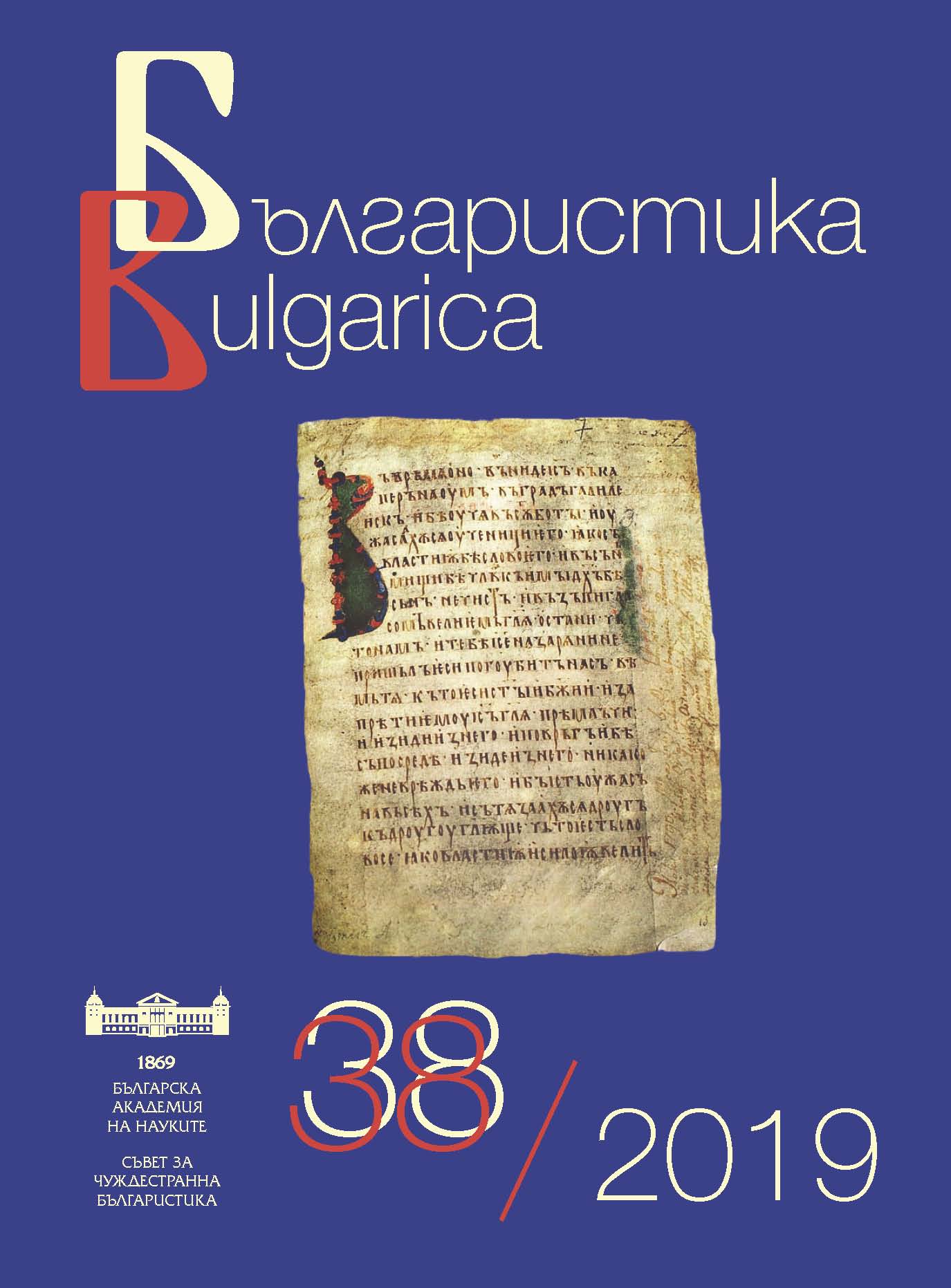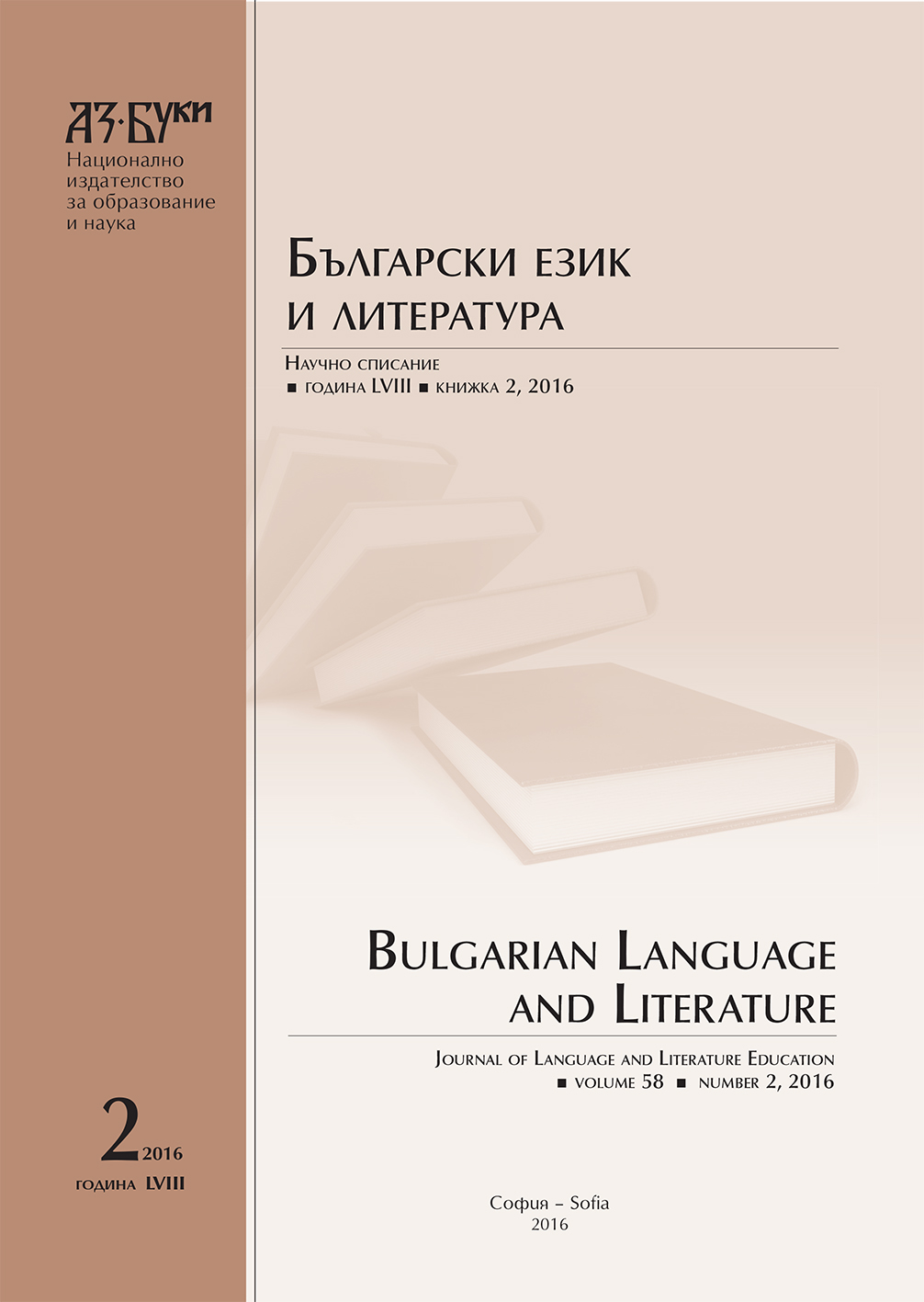
We kindly inform you that, as long as the subject affiliation of our 300.000+ articles is in progress, you might get unsufficient or no results on your third level or second level search. In this case, please broaden your search criteria.


For the Bulgarian poet Kiril Hristov, the coordinate system of foreign-ness encompasses three fundamental ethnocultural dimensions: Italian-ness, Slavic-ness and German-ness. The present essay aims to discuss the two basic stages of the utopian modelling of Slavic-ness in his oeuvre. In his works such “Slavic sun” and “Fate” (the period before the Balkan wars), the poet vocally contested the potential of the “imposed” and “ready-made”, prescribed political project of Slavophils. In the novel “White devils” and his journal “The times and the contemporaries” (the period after WW1), Kiril Hristov built a utopian retrospective of the ideal foreign-ness through the story of the former “Wends” – the Slavic tribes that were forcefully melted in the Germanic world. The novel’s self leaves that Germany he used to dream about after realizing that it was the engulfed and forever lost Slavic-ness that had drawn him irresistibly to it in the first place.
More...
This essay outlines the possibilities for chartering parallels between two collections of prose – “Under the Monastery Vine” by Elin Pelin and “The Well of Saint Clare” by Anatole France. The analogies and juxtapositions presented here stem from the categorical insistence on behalf of some scholars who see the two texts in terms of the following relation: follower (that of Elin Pelin) and prototype, model (that of Anatole France). The in-depth analysis of this relation reveals certain transformations of the model that are indicative of specific narrative decisions on the part of the Bulgarian author.
More...
The article is reviewing the educational aids of classical literature in the context of publishing and education politics based on already published products that are in circulation on the market in the period 1990-2014. The analysis consists of a comparison of the internal elements such as selection of the texts, placing the application and textual preparation which allows us to divide them into two groups: Conventional – this is characterized by a complete structural and genre harmony between the components of each volume in the series. Commercial – characterized by the low quality of the editorial process. Both groups show the nature of the publishing choices, which vary widely, and allow us to talk about differences between these seemingly identical publishing products.
More...
The Bulgarian Language Curriculum focuses on the development of students‘ text-based skills to different levels of communication - reading, listening, speaking. The article suddests a model for working with media texts in Bulgarian language learninig. The article represents cognitive and metacognitive levels of perception of the text in order to develop the social competence of the students.The article explains the ways of working on text structure (topic, subtopics, paragraphs); types of speech activities covered in Bulgarian language learning, language functions of the text .Suggested patterns of tasks and types of activities are developed to increase media literacy skills.
More...
Idioms are ethno-specific markers, which are frequently used in colloquial speech. Introducing the foreign students with the cultural and axiological knowledge, accumulated in the idiomatic meaning, is а main component of the teaching process.The aim of this article is to represent the results of purposive survey questionnaires for foreign students. The results of the survey show whether the students understand the meaning of the so-called new idioms in Bulgarian. New idioms are an important part of everyday Bulgarian. They come up all the time in both written and spoken language. Idioms don‘t make sense literally and the students will need to familiarize themselves with the meaning and usage of each idiom. The most important methodological procedure is to provide idioms in context, so the students can fully understand the meaning.
More...
This article briefly surveys the history and current status of Bulgarian studies at the Saint Petersburg State University, with a special focus on the Bulgarists and Slavists. We discuss the sequence of native Bulgarian lecturers in Bulgarian language, literature and culture from 1976 till the present.
More...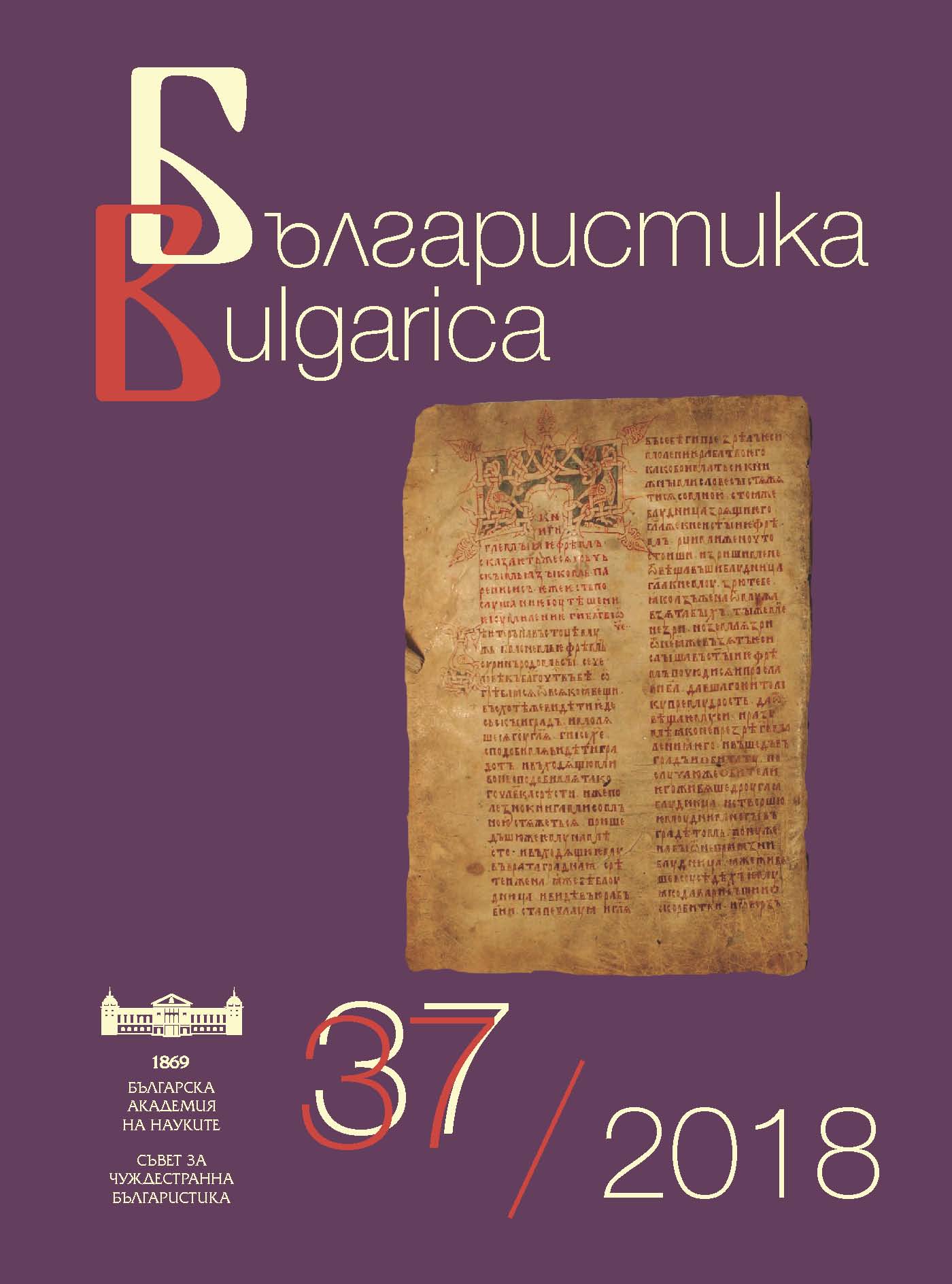


Yovkov’s treatment of war covers the full range of the life time during the cataclysmic event, i.e. there is a focus on its many-sided designation and manifestation. This text focuses on the work “Countrymen”, investigating the leading conceptual line in it - the movement of particular fi ction constructions and suggestions to their universal meanings. Its aims are related to the analysis of the dense network of references that in its own various functioning systematically develop the idea of m oral-psychological validity of the depicted war world and also – the concept of the dimensions of its expression in the particular inner state.
More...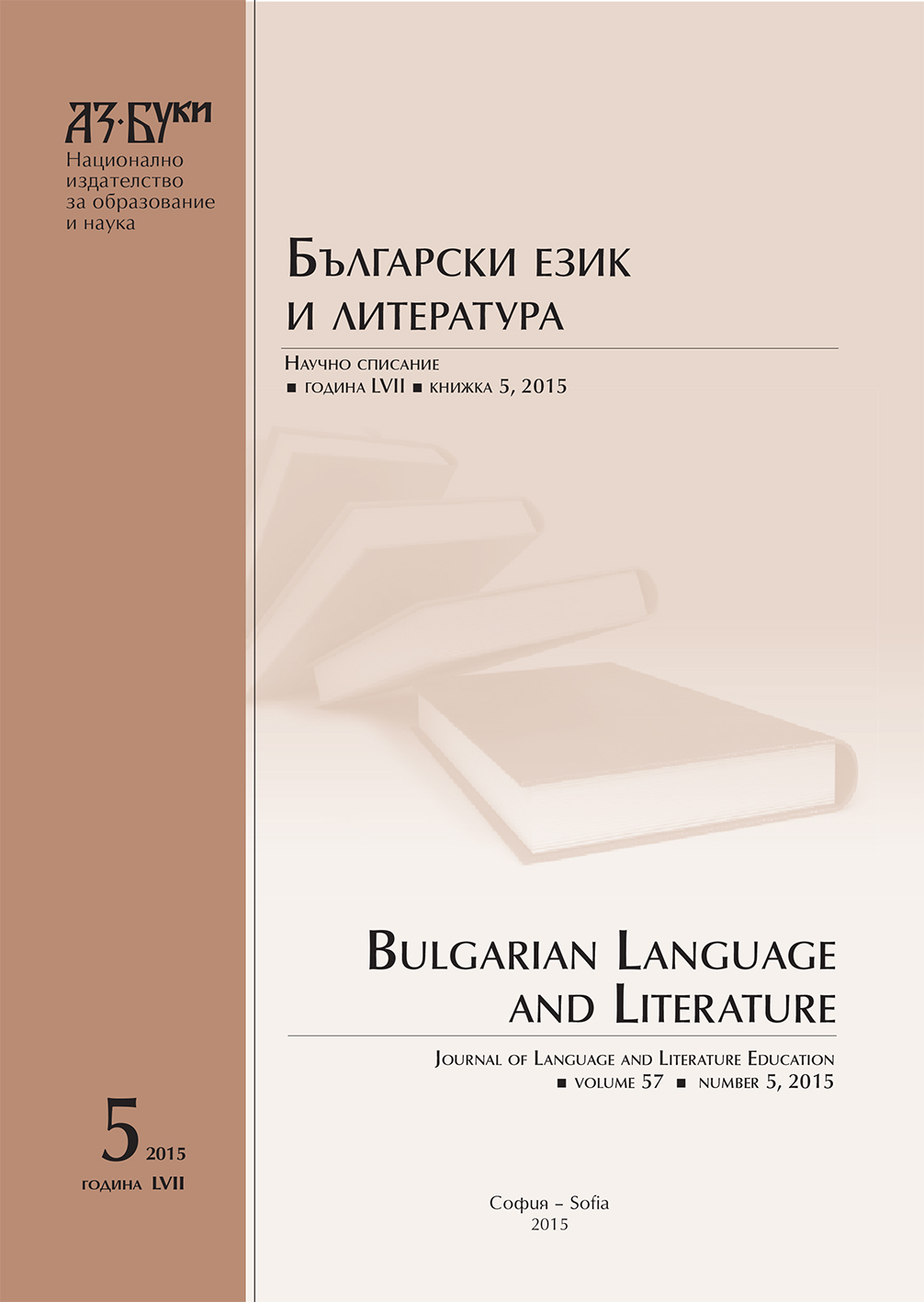
This article focuses on the uses of the term “fairy tale” and its manifesting in the periodicals for children by the World War I. The author discusses some kinds of fairy tales (folklore and literary) and sets some problems about children literature in the context of the periodicals for children.
More...
The article examines the part of Petko Todorov’s characters, that appears to remain away from the reception of literary criticism. These are all the famele characters, no mater their ethnicity or social status. This work propeses a semeotic analysis of all elements involved in the construction of the characters, looking for their common features and distinctive characteristics. As dominant in female imagery is displayed their exclusiveness – both in their appearance and their behavior. A conclusion is formulated, that Petko Todorov’s heroines aspire to love and freedom transgress taboos of the community and become a victim of their own modern selfhood.
More...
The “Ugly proses” texts are devoted to uprising in 1919 in Germany. By his ecstatic expressionistc language Geo Milev paint a verbal picture of a burst, outdated moral reality, which is like a resurrection for those who are like already dead in this reality. This historical event is presented in the symbolism of the biblical context which enchances the feeling of predertermination of the event and its perception as an apocalypse. Namely that is typical in the spirit of expressionistic poetics.
More...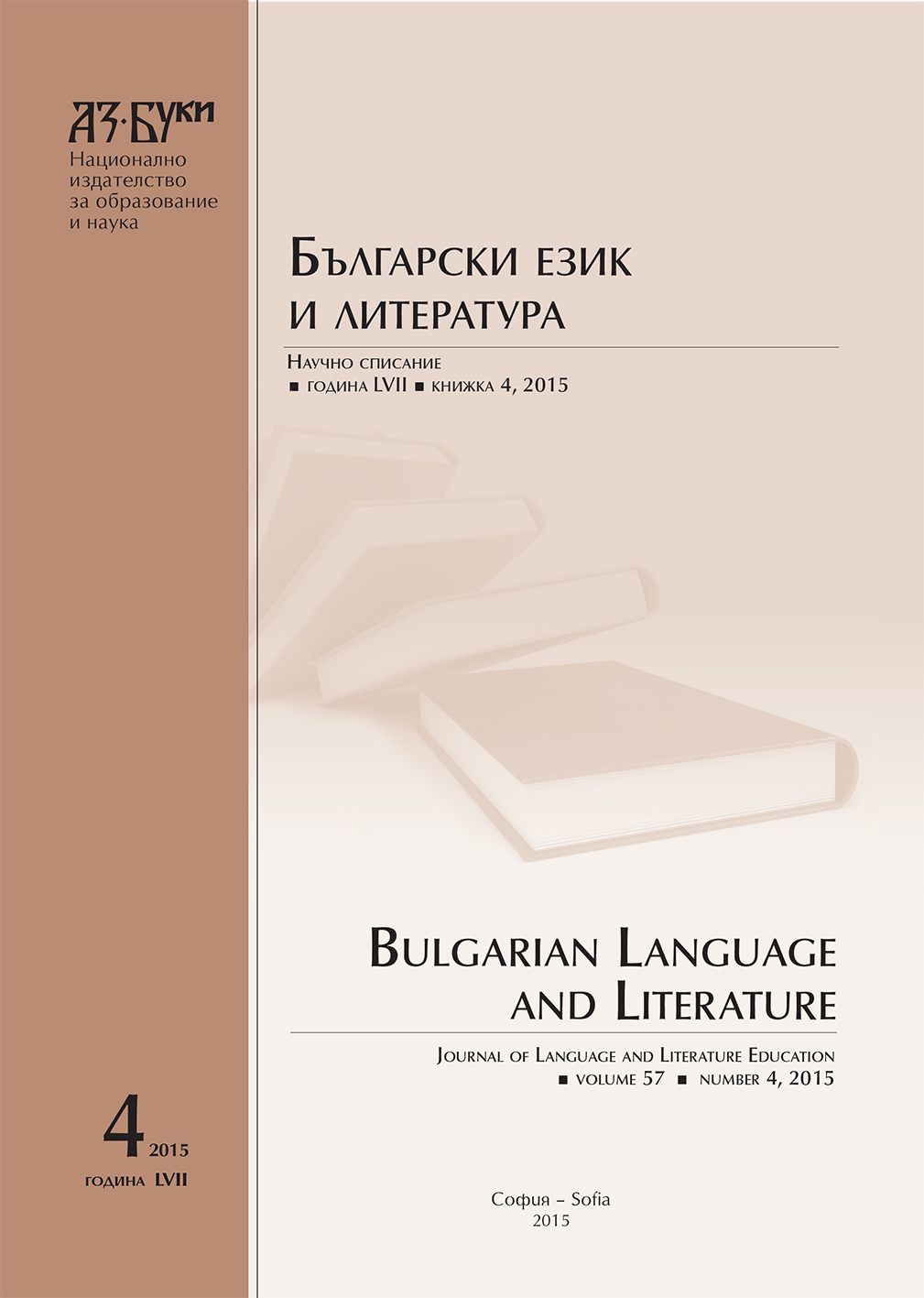


The destruction of the utopian myth of an achievable new socialist order seems to have begun even before 1944, but this wreckage, which took more than four decades, is visible in Khristo Smirnenski’s poetry in just seven years. The road from “The Red Squadrons” to “The Tale of the Stairs” is lived in but a breath, and for it to be entered into the canons, almost half of it would have to be obliterated, forbidden, forgotten or misinterpreted. In the poems signed under Khristo Izmirliev’s other pseudonym – Wedball, we discover new horizons of his poetical capabilities. Thirteen of his poems, published posthumously, outlined the fi nishing touches of his image in literature. At the end of his lifetime, taken down by tuberculosis, he doesn’t fall into despair. All he does is to portray, in the most perceivable way, the dismantling of an illusion.
More...
The edition contains various texts with eschatological visionary content. One of them is the “Trials of the Soul ” – a part from the “Vita of St. Basilthe New”. The main text of the “Vita of St. Basil the New” appeared during the Middle Ages. The text became popular again during the Renaissance, and especially the part of the soul`s trials of Blessed Theodora.This edition is translated from Church Slavonic language and was published by Naiden Ioanovich in 1843. The translation from the Church Slavonic was made by Joakim Kurchovski. This study aims to describe the edition in terms of content and specific features of the Bulgarian literary language.
More...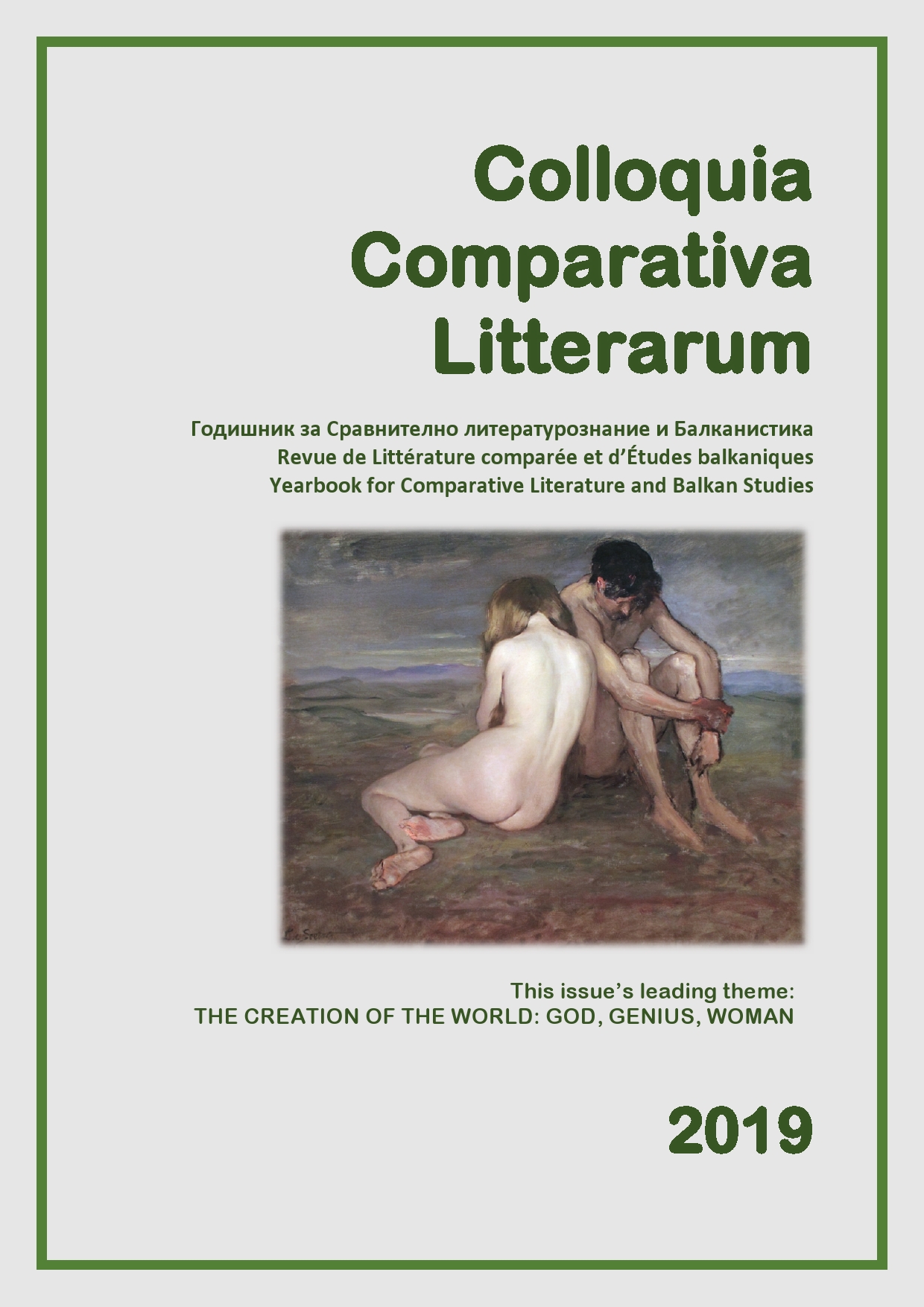
The aim of this study is to present the modern interpretations of the first Biblical couple in the interwar European novel. Works from French, Romanian and Bulgarian literature have been taken as examples on whose basis analysis has been made of the possible convergence of ideas in Europe during that period. The figure of the first Biblical family has been attracting writers in their aesthetic quests through the reflection on social models and the fulfillment of Man and Woman. Considering this context, the refusal of posterity becomes a painful theme. There is a dilemma between the desire to preserve the couple in the initial stage of innocence before the Fall and the intent to end the cycle of errors repeated by mankind. Last but not least, the theme raises the question of the newly emerging female identity which breaks away from the traditional roles of mother and wife.
More...